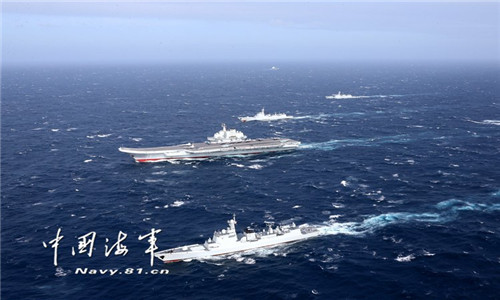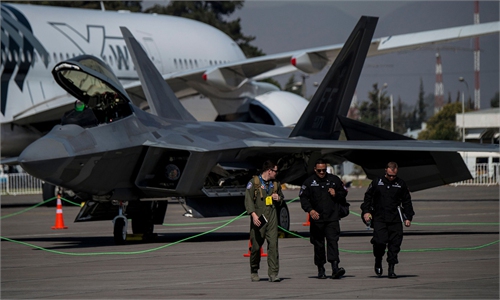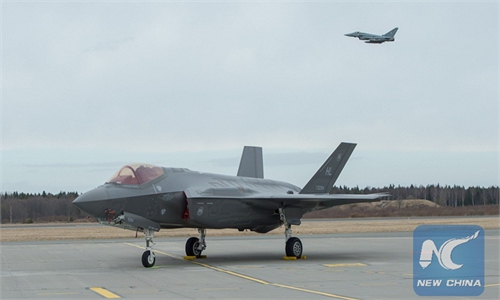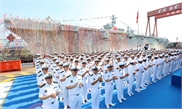
A naval formation consisting of aircraft carrier Liaoning has conducted take-off and landing drills in the South China Sea on Jan. 1, 2017. The formation, which is on a "cross-sea area" training exercise, involved J-15 fighter jets, as well as several ship-borne helicopters. (Photo source: Navy.81.cn)
A counter-landing drill, as part of Taiwan's annual Han Kuang exercises, was held on Thursday. It simulated a joint operation featuring land, naval and air troops against incoming landing forces, which obviously attempted to represent the Chinese mainland's People's Liberation Army (PLA).
The drill failed to acknowledge a potential real combat scenario in which PLA would likely launch intensive missile attacks first, and it also assumed the PLA could not seize air superiority and would not attack while landing, said Chinese military analysts, who called the drill a na?ve and meaningless show.
The drill took place at Jianan Beach in Taichung, a location the Taiwan military believes to be a potential spot for the PLA's landing, on Thursday morning, with Taiwan's regional leader Tsai Ing-wen in attendance, Taiwan media reported.
Designed to simulate PLA tactics, the exercise started with Taiwan military's fighter jets attacking the landing fleet, with a warship as support, after which artillery forces, attack helicopters and tanks fired and eventually "effectively stopped the hostile forces' landing operation," Taiwan media reported.
After watching the drill, military observers soon pointed out that its setting is nearly impossible, because it assumed Taiwan would automatically hold air superiority, Taiwan's weapons and equipment would remain intact prior to the counter-landing operation, and its troops would not suffer losses during the battle.
According to a computer combat simulation published by the Chinese mainland's Naval and Merchant Ships magazine in May, as well as many other military analysts, a reunification-by-force operation by the PLA will very likely start with intensive waves of missile and rocket attacks that would neutralize most of Taiwan's air defense capabilities, and PLA warplanes would then seize air superiority and sweep enemies, with PLA warships, including two aircraft carriers, also engaging in naval battles.
PLA landing operations would take place after this first round of assault, meaning that the scenario Taiwan military simulated on Thursday will not happen, because any weapons and troops they deployed in the drills will be mostly destroyed before their counter-landing operation, observers noted.
Song Zhongping, a Chinese mainland military expert and TV commentator, told the Global Times on Thursday that the Taiwan military's exercises are a meaningless show, as they were set under ideal conditions.
The Tsai Ing-wen authority and Taiwan military know the Taiwan military does not stand a chance against the PLA, but they still wanted to give themselves a false sense of courage, Song said, noting that this mentality is also boosted by the US, which is selling weapons to the island.
In the previous days of this year's Han Kuang exercises, Taiwan launched missiles, torpedoes and carried out fighter jet sorties, Taiwan media reported.
Another Chinese mainland military expert told the Global Times on condition of anonymity that the exercises remained at a level in which only weapons were test-fired, and were far away from real joint drills.
The drills underestimated the PLA's determination and capability to achieve reunification, the expert said.
In the afternoon, a military helicopter participating in Taiwan's Han Kuang exercises crashed at an air force base in Hsinchu, Taiwan media reported




